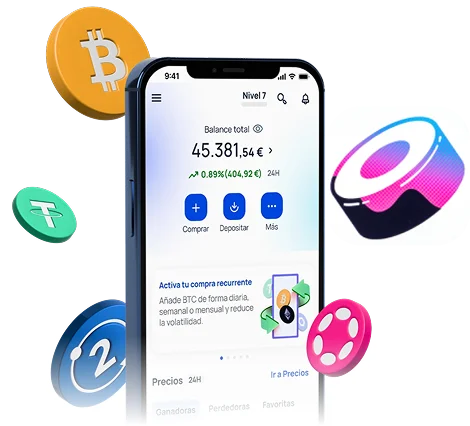Create a Own Community-Driven Decentralized Exchange Using The SushiSwap Clone Script. Begin your Ethereum-based DeFi exchange venture right away using our top-tier SushiSwap Clone Software
The Sushiswap clone script is a software solution that replicates the functionality and features of the Sushiswap decentralized exchange (DEX) platform. It allows developers and entrepreneurs to create their own decentralized exchanges based on the Sushiswap model. This clone script typically includes the core components and smart contracts necessary to launch a DeFi exchange platform, making it easier for businesses to enter the DeFi space and provide decentralized trading services to users.
It allows users to trade cryptocurrency directly with one another, without any need for a bank as an intermediary. This basically refers to decentralized trading and thus guarantees little privacy and means of control over assets.
Users can add their crypto to the liquidity pool to earn rewards. The liquidity pool provides the necessary liquid for traders to buy and sell tokens. In exchange, it pays the liquidity providers a share of the transaction fees.
The app allows its users to swap one cryptocurrency for another. For example, you can cherry-pick USDT from Ethereum or practically any token supported by the platform with just a few clicks.
Under the Sushiswap Clone, users can participate in yield farming, which involves staking their tokens in pools to earn further rewards, usually in the platform's native token.
Users can stake tokens on the app for passive income. They will effectively lock their tokens on the platform and be rewarded, over time, with additional tokens.
It supports multiple blockchains. The trading of tokens across different blockchain networks offers smoother and flexible trading.
Holding native tokens means users have a say in governance. They are able to vote on proposals to change or improve the app's features or policies thus allowing a stake in the platform's future.
It allows users to set slippage tolerance, allowing them to decide how much price change a token would be able to sustain before being called off from a trade, therefore putting more control in their hands over any transaction.
How a SushiSwap Clone works, step by step, for users
The first thing that needs to be done is connected with a crypto wallet to the SushiSwap Clone platform. This gives the user the capability to interact with the decentralized exchange directly.
After connecting your wallet, select the two cryptocurrencies you want to trade.
The platform shows the current exchange rates between the tokens and the liquidities available in the pools. You can check for a fair swap.
Input how much of one cryptocurrency you wish to exchange, and the system automatically calculates how much you will receive in the other token.
Review the swap's details, including fees, and confirm your transaction. The trade will then be processed based on smart contracts, guaranteeing decentralization and enormous security for the transaction.
The swap after confirmation is performed instantly. Your new tokens are sent directly to your wallet.
If you want to earn fees, you can provide liquidity to specific trading pairs through adding tokens to liquidity pools, earning rewards accordingly.
You can also check the platform's dashboard for your previous trades, liquidity positions, and earned rewards.

The ready software thus lets you quickly set up the DeFi exchange by cutting short on the time applied in development and the cost involved as well.
It avoids the high expenditure box on the DeFi trading development from the scratch.
Custom modules can be developed killing the need to work on the core of the clone script.
Wherever an assurance can be given, SushiSwap's success is an assured time tested foundation.
Advanced coded designed to prevent unwanted issues.
Works with no governing authority to enforce transparency and user control.
Liquidity pools are already integrated, giving it easy trading of tokens for the users.
It can scale as per the growth of your platform- to host more users and more transactions.
It makes use of the existing code with less bugs and issues than those present in commencing from the ground.
Integration with other DeFi protocols and services is easy and offers varied functionalities.
The White Label SushiSwap clone script is a comprehensive DeFi exchange clone software solution that provides a fully decentralized platform for launching a DeFi exchange similar to SushiSwap. Developed by Coinsclone, this premium clone script replicates the core features and capabilities of SushiSwap, offering a seamless experience for crypto enthusiasts.
Built on the Ethereum blockchain, our SushiSwap clone App empowers users to participate in a decentralized network, allowing them to generate both active and passive income. With a focus on long-term sustainability, our script includes robust features and security modules to ensure the secure operation of your DeFi exchange. It also offers attractive incentives for liquidity providers.
One of the key advantages of our SushiSwap Clone Software is its flexibility. You can easily customize smart contracts and other essential functionalities to align with your specific business requirements. Our clone script is the result of the expertise of blockchain developers who have been consistently setting new industry standards. Launch your own DeFi exchange and tap into the growing DeFi market with Our Blockchain Experts

Farms in the SushiSwap clone script allow users to stake their tokens and earn rewards by providing liquidity to specific pools. It incentivizes users to participate actively in the ecosystem.
This feature enables users to migrate their liquidity from one pool to another without much hassle, providing flexibility and optimizing their yield farming strategies.
It is automatically adjusts the ratio of tokens in a liquidity pool to maintain stability and reduce impermanent loss for liquidity providers.
Users can easily connect their crypto wallets, such as MetaMask or Trust Wallet, to the SushiSwap clone script to access their funds and interact with DeFi features.
The lending feature allows users to lend their cryptocurrencies and earn interest over time. It provides an additional revenue stream for crypto holders.
Users can borrow assets by using their deposited collateral. This feature supports leveraged trading and DeFi strategies, but it also involves a level of risk.
Staking allows users to lock up their tokens for a specific period in exchange for rewards. It's a way to earn passive income within the DeFi ecosystem.
This is designed for optimal transaction speed, ensuring that users can execute their DeFi operations quickly and efficiently.
This feature distributes a portion of the platform's revenue back to the community, typically in the form of governance tokens. It aligns the interests of users with the platform's success.
The smart contracts that power the SushiSwap clone should undergo thorough security audits by reputable blockchain security firms. These audits help identify vulnerabilities and weaknesses in the code, reducing the risk of exploits.
Implement a bug bounty program to incentivize the community and external security experts to report vulnerabilities. Rewarding individuals for identifying and responsibly disclosing bugs can help identify issues before they are exploited.
Use multi-signature wallets for key management and transactions. Multi-signature wallets require multiple private keys to authorize transactions, adding an extra layer of security.
Implement timelocks on critical smart contracts and governance proposals. Timelocks prevent immediate changes to the protocol, giving the community time to review and potentially veto any changes.
Ensure that the smart contracts are upgradable in a transparent and decentralized manner. This allows for security fixes and updates without compromising the integrity of the platform.
Implement a Decentralized governance approach that allows investors in tokens to decide whether to modify the protocol. This guarantees that solutions are made effectively and collaboratively.
Enables platform accessibility in multiple languages for a global user base.
Provides insightful data visualization tools for users and administrators to track platform performance.
Offers comprehensive instructions for developers to interact with the platform's API endpoints.
The possible ways to generate income. They include the following major ones
Each time a user swaps tokens on the platform, a small fee is charged. The fee is usually a percentage of the value of the trade, with the platform collecting this to be shared between the liquidity providers and the platform itself as revenue.
When customers deposit funds to the liquidity pools, they receive transaction fees that are shared on the basis of their contribution. For the liquidity pools themselves, the platform charges small fees to the liquidity providers, thus raking in more revenue.
This is a provision where users will stake their tokens and earn rewards. Yield farming will also be part of the platform where users earn rewards when they provide liquidity. The platform will benefit from more user activity leading to a lot of fees generated for it.
Often derived from SushiSwap clones, these tokens are then meant for voting on the changes that would be made to the platform. These can further be exchanged or traded to make some profit.
The site can do a launch of its new tokens or partner with some different projects and charge fees for their listing or marketing of new tokens.
Our process is very simple and avowed, focusing on producing the best of the top software. This is a clear-cut process flow on how we develop the SushiSwap clone script
We try to understand your business goals and what particular features you desire to have in your SushiSwap clone here. This may include customizations like token swaps, liquidity pools, and governance features.
Our experienced developers would write the basic script replicating all the functionalities of SushiSwap while adding necessary improvements. We guarantee seamless integration with smart contracts and the user interface.
This is conducted before deployment. Testing and massive vetting are done to check the presence of bugs, vulnerabilities, and performance issues. Security is given prime importance and we follow industry best practices to seal your platform from attacks.
When the script is ready we help you deploy it on your server and further give ongoing support that ensures smooth operation.
Choosing Nexcenz is a prudent decision for your crypto venture. Our cutting-edge solutions, including the SushiSwap Clone Script, reflect our commitment to innovation and excellence in the blockchain industry. With a focus on security, scalability, and customization, we empower entrepreneurs to swiftly launch and operate DeFi exchanges, leveraging features like farms, liquidity migration, and multilingual support. Our dedication to client success, coupled with robust security measures, ensures a safe and thriving DeFi ecosystem. By opting for Nexcenz, you're choosing a partner dedicated to helping you achieve your DeFi ambitions efficiently and securely.
Get a Free ConsultationYes, our SushiSwap clone script replicates all key features of SushiSwap with added customizations as per your requirements.
Cost depends on features used and customizations along with a choice of blockchain platform. We will give you a customization after discussing your needs with us.
Absolutely! Full customization is ours to guarantee that the clone script is in total tandem with your very specific business goals and align with your branding.
Usually, this time is of about 1 week depending upon the complexities and specific features you want for your platform.
Our services also include post-delivery support and maintenance for a smooth-run platform
You let us know what you need, Technical experts will call to review your needs in detail.We promise to keep all information private.
